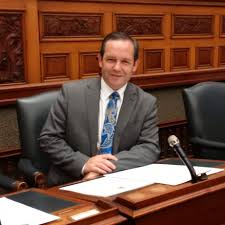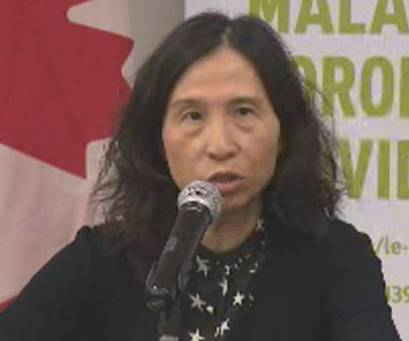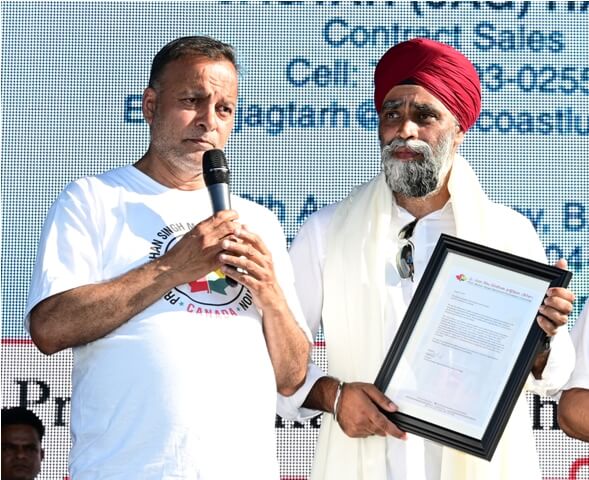
Ontario Taking Steps to Make it Easier and Safer to Participate in Provincial Elections
New legislation would help modernize the voting process in a COVID-19 environment
The Voice of Canada News :
TORONTO — The Ontario government is taking steps to make it easier and safer for people to vote, become a candidate and protect provincial elections against outside influence and interference. The Protecting Ontario Elections Act, 2021 would, if passed, help guard against threats such as the long-term impacts of the COVID-19 pandemic, under-regulated third-party advertising, irregular campaign spending and collusion.

“We strongly believe that Ontario voters should determine the outcome of elections, not big corporations or unions, American-style political action groups or other outside influences,” said Attorney General Doug Downey. “That’s why we are proposing legislative action to protect Ontarians’ essential voice in campaigns and to make it easier to cast a vote safely in an advance poll or on election day. These amendments would help modernize Ontario’s electoral process and ensure it is updated to meet urgent challenges, including COVID-19.”
The proposed reforms build on the Ontario legislature’s 2016 decision to ban corporate and union donations to political parties and help ensure individuals remain at the centre of the electoral process.

To protect Ontario elections, 19 legislative amendments have been proposed to:
- Make it more convenient and safer for people to vote in a COVID-19 environment by increasing advance polling days from five to ten, changes first proposed by Ontario’s Chief Electoral Officer;
- Double the amount individuals can donate to a candidate, constituency association, leadership contestant or party from $1,650 to $3,300 per year, protecting the essential voice of Ontarians in campaigns;
- Extend third-party advertising spending limits from six to 12 months before an election period and introduce a definition of collusion to help protect Ontario’s elections from outside influence and interference; and
- Clarify the rules that allow Members of Provincial Parliament to maintain individual social media accounts before, during and after a writ period, as well as pave the way for the legislature to set other social media rules.

Elections Ontario has reported that the scale of third-party advertising in Ontario is greater than at the federal level, and Ontario is the only province in Canada where third-party spending is counted in the millions of dollars, rather than in the thousands. In 2018, third parties spent over $5 million during the election period and the six months prior to the election.
“Each and every Ontarian is a driving force of our democracy – from casting their votes to volunteering on campaigns or putting one’s name on a ballot,” said Attorney General Downey. “We want to ensure that the electoral system continues to evolve to protect their central role as individuals and promote fairness in the electoral process for everyone.”

QUICK FACTS
- Several of the proposed reforms fulfill recommendations of Ontario’s Chief Electoral Officer from a special report on election administration and the COVID-19 pandemic, released in November 2020.
- In response to requests from the municipal sector, the government is also proposing changes to the Municipal Elections Act, 1996 that would enable clerks to allow municipal election candidates and third-party advertisers to submit their forms electronically.
- Learn more about the proposed amendments in this bill.
- 2020 marked 100 years of elections in Ontario. Over the past century, Elections Ontario has administered 28 general elections, 149 by-elections and two referendums.
- Learn more about previous reforms to address the influence of third parties on elections.



